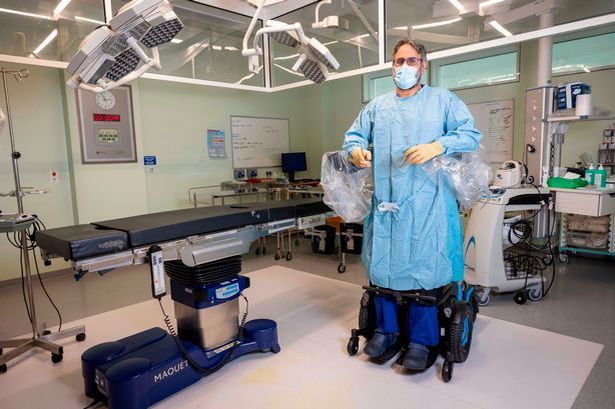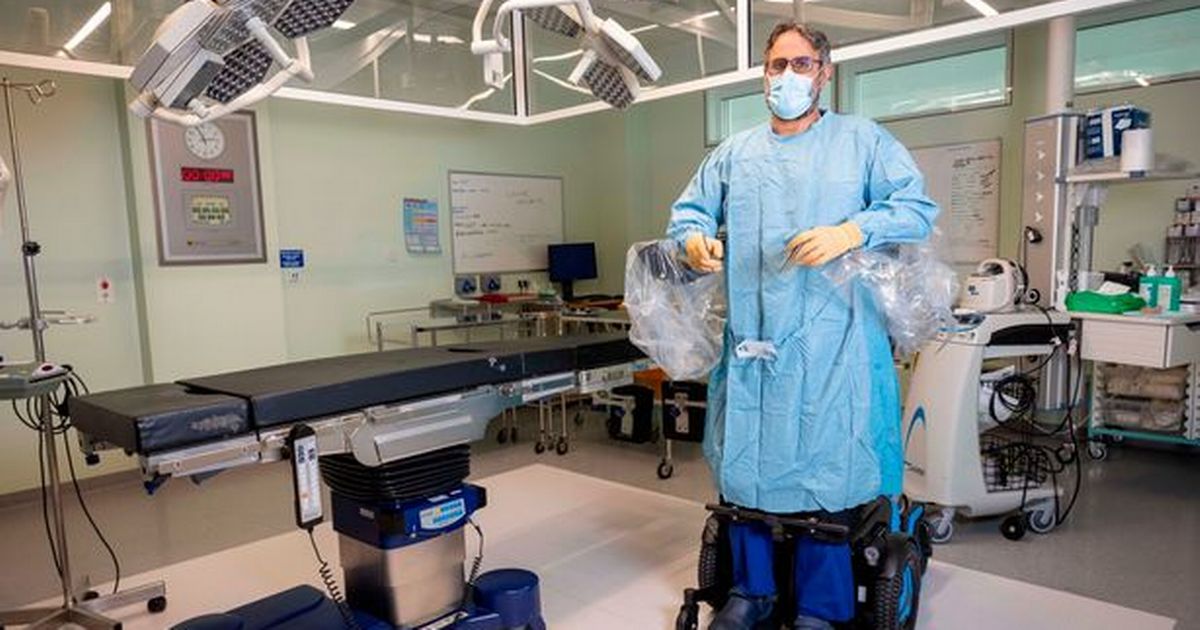Consultant urologist Mo Belal says children as young as 16 are being admitted to hospital Consultant urologist Mohammed Belal.(Image: The Mirror )
Consultant urologist Mohammed Belal.(Image: The Mirror )
A Birmingham doctor has spoken of an “explosion” of young people taking a drug which has swept the country.
Mo Belal, a consultant urologist at Birmingham’s Queen Elizabeth Hospital, said teens as young as 16 were being treated for the effects of ketamine. The class B substance carries a maximum penalty of 14 years in prison and an unlimited fine.
But the Government is seeking expert advice on reclassifying it as a class A drug in response to stats showing record levels of use in the year to March 2023.
READ MORE: Birmingham teenager raped schoolgirl then told her it was ‘stupid’ in Facebook message
Ketamine can cause permanent damage to the bladder and kidneys and, according to the the Government, is often found in the synthetic drug ‘pink cocaine’.
Mr Belal told BBC Radio 5 Live today, Tuesday, June 10: “Unfortunately, they don’t realise the chronic and long-term use of it results in a very shrunken bladder with severe pain.
“Because ketamine is an excellent analgesic, they take even more for the pain and it leads to this loop where they keep on taking more and do more damage to their bladder.
“The initial stage, in the first year or two, is recreational because of whatever high they get. But it can be compounded when they start getting severe bladder symptoms which also results in severe bladder pain.
“That makes them take even more, and that worsens the bladder symptoms, because what the ketamine does is it causes severe inflammation in the bladder which then leads to scarring.”
 Queen Elizabeth Hospital, Birmingham(Image: Anita Maric / SWNS)
Queen Elizabeth Hospital, Birmingham(Image: Anita Maric / SWNS)
Asked the age of patients he treated after using ketamine, Mr Belal said: “Really, anywhere from 16 onwards.
“The most common [age] range is about 16 to 25. Then you get an older group from, say, 25 to 38 who have been taking it for some time.
“We did a quick survey and there has been a massive explosion around the country of people taking ketamine and presenting to us, either as an emergency or being referred to us, with these problems.
“We’re very concerned. We’re trying to get the message out that in initial stages if they stop ketamine their bladder will get better, but if they carry on the changes become permanent and they may end up needing a bag.”
Mr Belal pinpointed the pandemic as the moment cases began to rise. “Covid exacerbated it,” he said.
He said the drug was attractive to young people because “it’s very cheap” and “the effects only last” a short time.
He added: “A lot of people use it and then can go home and appear normal to their parents. I think that’s what’s led to an increase in it.
“It didn’t have the same connotation as it did in my generation when people would never even touch it, because they saw it as a horse tranquiliser. It had such a negative connotation that it put a lot of people off.”
Mr Belal called on schools to educate children on the dangers on the drug and for the Government to invest in more drug and alcohol services to help addicts get clean.
On how addictive ketamine can be, Mr Belal said: “The ones we see who have been taking it for a number of years, it’s extremely difficult.
“You tell them, look you’ve destroyed your bladder, you’ve destroyed your liver, they still keep on taking it.”
New figures showed use of the drug in the UK increased by 85 per cent between 2023 and 2024.
Some criminal gangs were making more money from selling ketamine than other illegal drugs such as cocaine, according to Belgium’s central directorate of drugs Marc Vancoillie.
